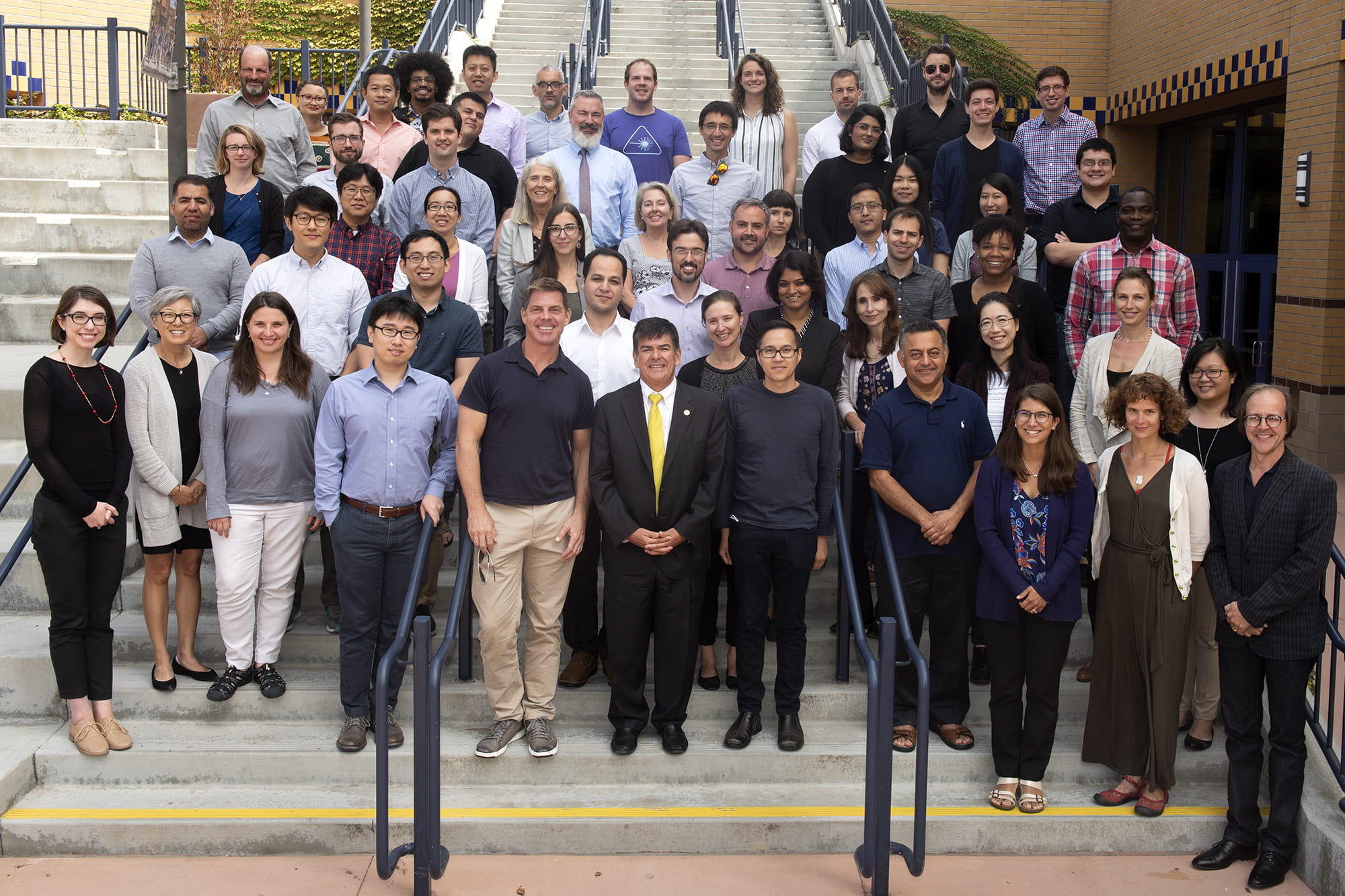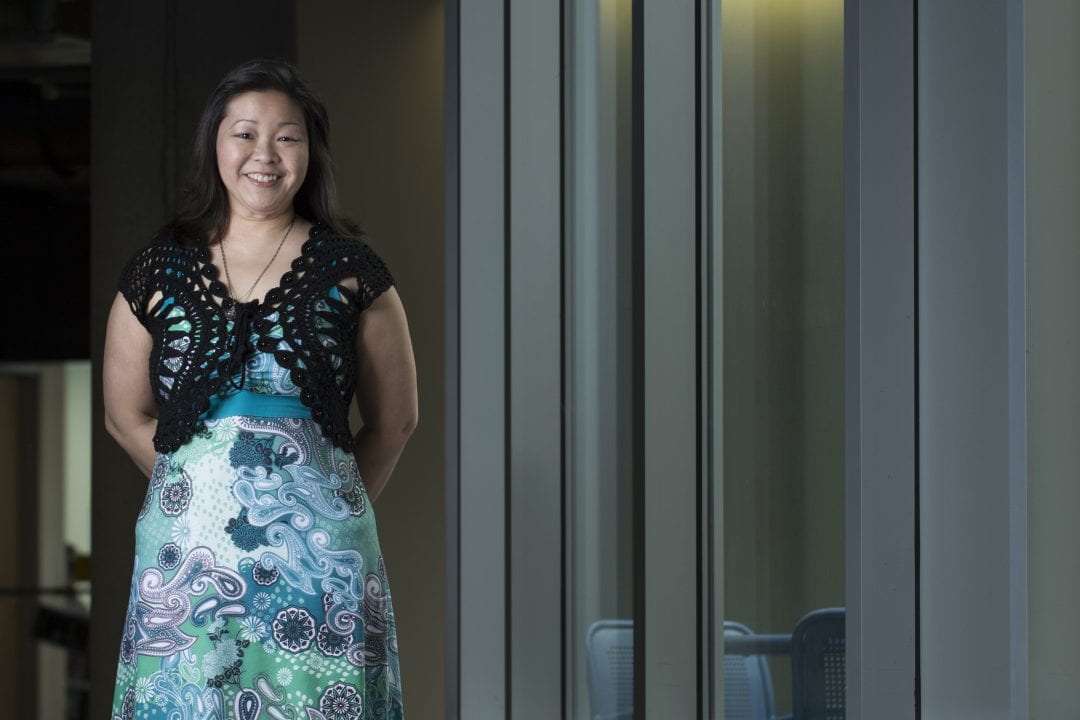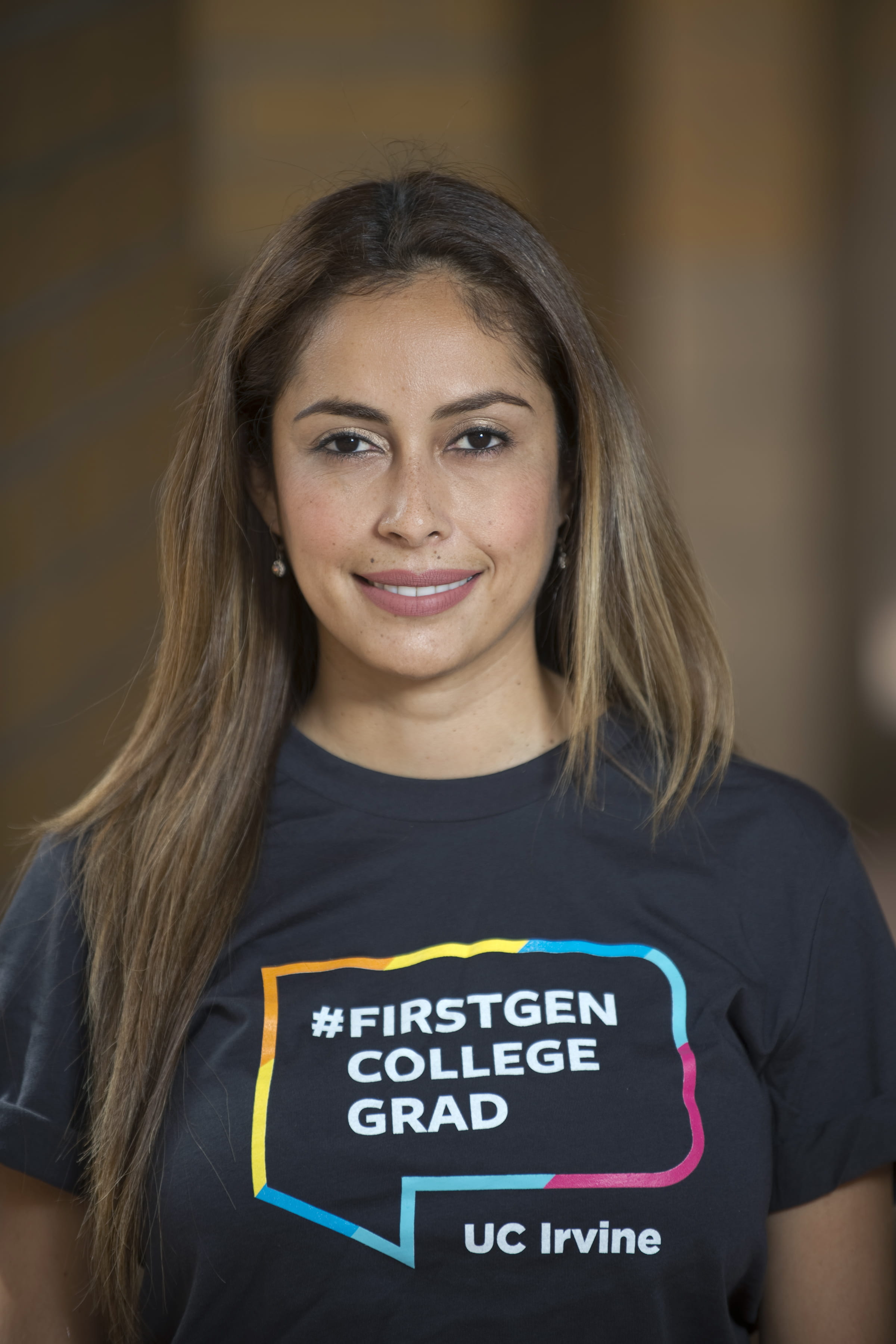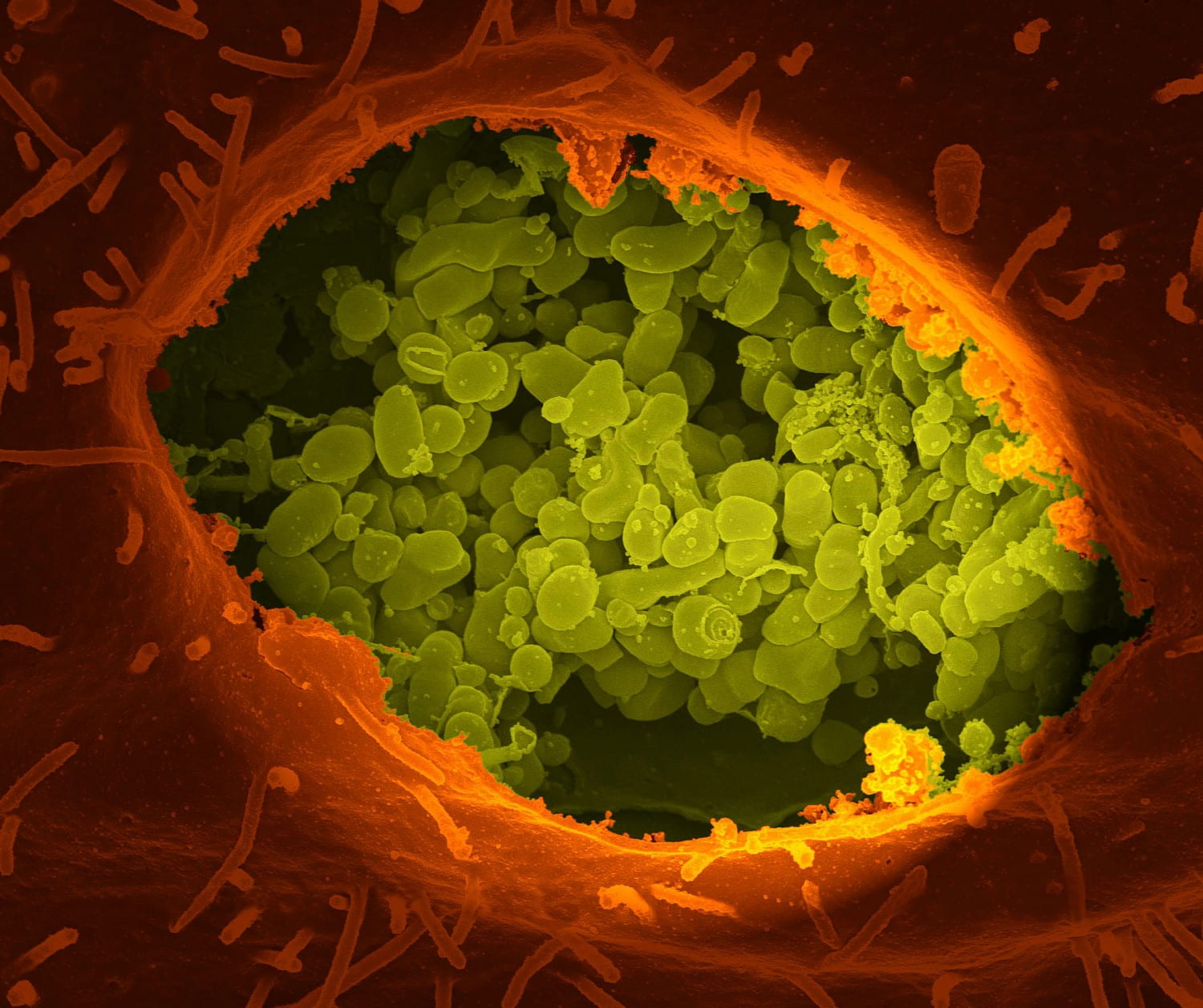New faculty faces
Hiring of 78 educators goes a long way toward strategic plan goal of adding 250 by 2021

On Sept. 25, Enrique Lavernia, provost and executive vice chancellor, welcomed 78 new faculty members – one of the larger cohorts in recent campus history – to UCI for the 2018-19 year.
The influx goes a long way toward achieving Chancellor Howard Gillman’s goal of hiring an additional 250 permanent faculty members by 2021 – a goal laid out in the UCI strategic plan released in 2016. The School of Social Sciences, with 13 newcomers, saw the biggest increase, followed by the Donald Bren School of Information & Computer Sciences, with 11; the School of Humanities, with nine; and the School of Physical Sciences, with eight.
“As outlined in our strategic plan, faculty growth has allowed UCI to expand our life-enhancing discoveries and make great strides in solving the world’s grand challenges,” Gillman says. “I am impressed with the creativity, academic rigor and research pursuits of the new faculty joining us this year.”
Thirteen new assistant professors were hired through programs designed to increase faculty diversity. Seven arrived via the President’s Postdoctoral Fellowship Program, which was established to encourage outstanding female and minority Ph.D. recipients to pursue academic careers at the University of California. Another six assistant professors entered UCI’s ranks thanks to the inclusive excellence program, through which the Provost’s office makes available funding to promote equity in faculty employment.
“Academic hiring is one of the most important decisions we make on the campus,” Lavernia adds. “I am very proud of these new faculty and especially pleased with those who have joined through our efforts to enhance faculty diversity.”
High-impact hires also have been recruited in myriad fields of study from an elite pool of accomplished scholars around the world. They include:
- Internationally regarded ophthalmologist and pharmacologist Krzysztof Palczewski, who will develop new vision therapies at UCI’s Gavin Herbert Eye Institute, in the School of Medicine;
- Noted sleep researcher Sara Mednick, author of the influential book Take a Nap! Change Your Life, in the School of Social Sciences’ cognitive sciences department;
- A trio of legal scholars in the School of Law: Joshua Blank in the area of tax administration and compliance, Victor Fleischer in partnership tax and private equity law, and Dalié Jiménez in bankruptcy and debtor-creditor law;
- Information systems scholar Vibhanshu Abhishek in The Paul Merage School of Business’ growing master’s program in business analytics;
- Experimental particle physicist Juan Pedro Ochoa-Ricoux, a world leader in the study of neutrinos as windows into the fundamental laws that govern the universe, in the School of Physical Sciences’ Department of Physics & Astronomy;
- Computer scientist Stephan Mandt, who works in the area of machine learning and comes to UCI from Disney Research, in the Donald Bren School of Information & Computer Sciences;
- Kylie Peppler, who studies the intersection of arts, media, computational technologies and interest-driven learning, in the School of Education and the Donald Bren School of Information & Computer Sciences;
- Psychological scientist Alyson Zalta, whose research focuses on the psychological distress experienced after trauma by veterans, homeless youth and urban dwellers exposed to interpersonal violence, in the School of Social Ecology;
- Michael Hoyt, who studies the bio-behavioral processes related to psychological adjustment to and coping with cancer and other chronic diseases, in the Program in Public Health;
- Amal Alachkar, an activist for exiled Syrian scholars who researches the neurobiology of neurological and psychiatric disorders, in pharmaceutical sciences;
- Dave Holmes, a psychiatric nurse by training who studies the mental health impacts of being a member of marginalized populations, including LGBTQ and incarcerated populations, in the Sue & Bill Gross School of Nursing;
- Iryna Zenyuk, who focuses on renewable energy, specifically to pursue green-energy technology in next-generation alternative-fuel vehicles, in The Henry Samueli School of Engineering and as associate director of UCI’s National Fuel Cell Research Center;
- Molecular biologist Roberto Tinoco, whose work on T-cell activation and inhibition may lead to more effective ways of reinvigorating the body’s immune system, in the School of Biological Sciences; and
- Distinguished literary scholar and author Tyrus Miller, who was brought aboard as dean of the School of Humanities and a professor of art history.
Humanities programs at UCI have traditionally been some of the strongest in the country, and Miller plans to amplify these strengths, to empower connections between disciplines and ideas, and to support innovation that furthers reach and impact. A longtime administrator and professor at UC Santa Cruz, he believes that interdisciplinary humanities are key to addressing complex contemporary problems. “This is, without question, the most exciting time ever to be a scholar or a student in the humanities,” Miller says.


